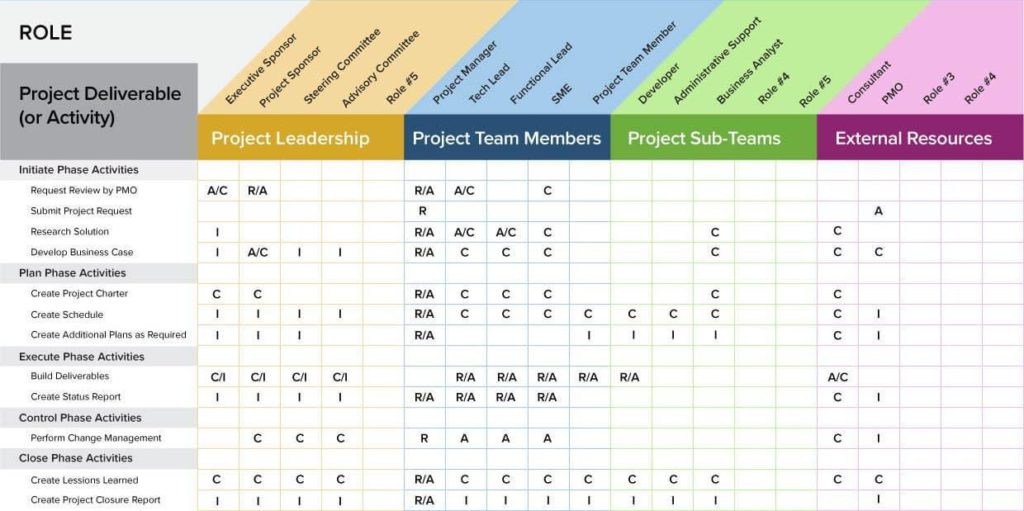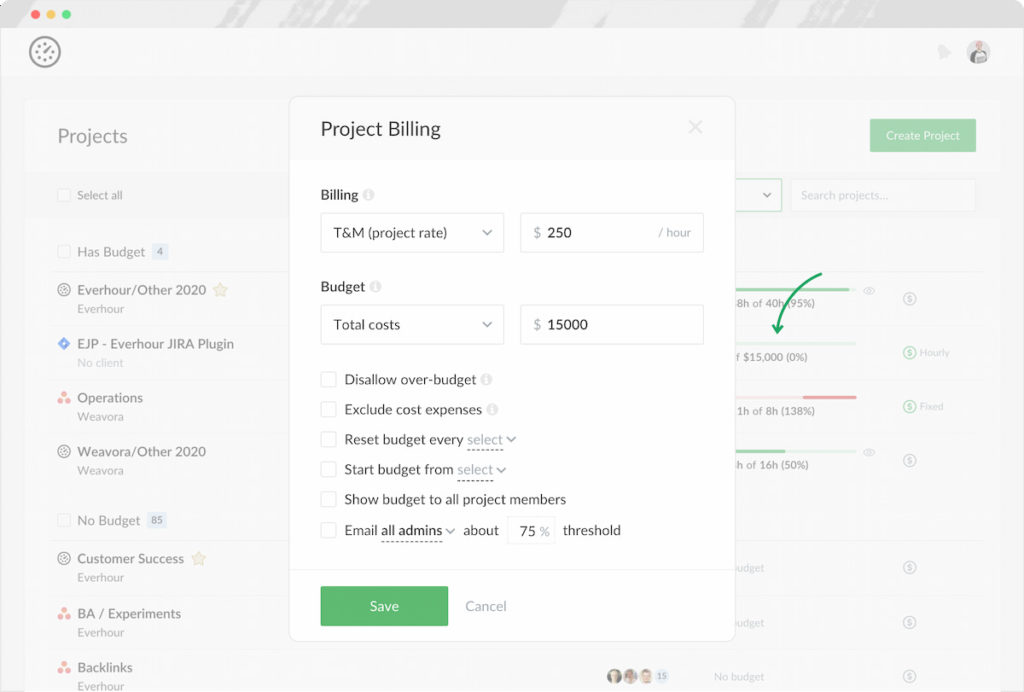Project management is no easy feat. It involves dealing with uncertainty, overcoming unique challenges, managing people from different areas of an organization, and adapting to changes quickly. As a result, project management can be complex and may feel stressful at times.
However, by sticking to project management basics, you can increase your next project’s likelihood of success. Tools like a free time card calculator can help streamline processes and improve efficiency. In this article, you’ll find out about ten crucial project management principles you must know to ensure your next project runs smoothly.
Understanding Key Project Management Principles
Before we delve into the all-important principles, let’s explore the nature of a project and why effective management is essential.
A project is a temporary venture with a defined beginning and end to meet an organizational goal or objective. However, all projects have a set of constraints, usually a defined budget, scope, quality, and a specific deadline.
To ensure projects meet pre-defined objectives, project management professionals (PMPs) must contend with several stakeholders, often from different departments, and keep them on track if the project is to succeed.
On top of that, in order to guarantee a project’s success, project management professionals follow a set of essential PMP principles. Of course, no two projects are the same, but successful ones share these vital principles. Let’s delve into those principles deeper.
Project Management Principles: Overview
How to Define Clear Project Goals and Objectives

When starting a project, it is vital to clearly and accurately define the goals and objectives of the venture. Goals are achievable outcomes that are usually broad and long-term in their nature, whereas objectives are measurable actions that achieve broader goals. To ensure goals and objectives are appropriate, project managers will use SMART criteria:
- ✅ Specific: The goal or objective should target a specific need
- ✅ Measurable: The goal or objective must allow for measurable progress
- ✅ Attainable: The goal or objective should be realistic based on the available resources
- ✅ Relevant: The goal or objective should align with other organizational objectives
- ✅ Time-bound: The goal or objective must have a clear deadline
Once defined, project managers must communicate goals and objectives clearly to each member of the team to ensure everyone is in the loop and understands the purpose of the project.
Decide on a single project leader
The role of a project leader is vital and multifaceted. There are myriads of tasks and duties a project leader must cover, but essentially an effective leader:
- Leads by example
- Takes accountability for their actions
- Communicates with team members regularly
- Sets clear goals and is determined to achieve them
- Recognizes success, making team members feel appreciated and valued
- Addresses conflicts tactfully
- Acts as a single point of contact for all team members
- Motivates and inspires team members to do their best work
Confirm roles and responsibilities
A lack of clarity about team members’ roles and responsibilities will quickly cause problems in a project. For example, when individuals are not entirely sure of their duties, important tasks may be left incomplete. Consequently, unfinished tasks can lead to team conflict, unhappy stakeholders, and project delays.
By confirming the roles and responsibilities of team members at the very beginning of the project, it’s more likely that stakeholders will deliver on their promises and meet set deadlines.
Some teams may benefit from a RACI chart, which shows the responsibilities of each project team member. Each team member is assigned a letter according to their role for each task:
- ❗ R: Responsible for completing the task and making a decision
- ❗ A: Accountable for the project overall and must approve project deliverables
- ❗ C: Consulted to provide input to the task
- ❗ I: Informed on project progress

The RACI chart helps to ensure all team members are aware of their role on specific tasks, reducing disagreements, delays, and confusion.
Creating a Formal Structure for Project Success
Without a formal structure that is easily accessible to everyone in the team, it can be difficult for a project to stay on track. As a result, there must be an integrated plan that outlines the required actions of each team member and records progress. If you’ve ever tried to complete a project without a formal structure that outlines clear processes, and helpful tools, you’ll know just how difficult and confusing projects can become.
Thankfully, project management platforms such as Trello, Asana app, Basecamp, Monday, and Zoho allow teams to track the progress of individual milestones and projects to ensure all stakeholders are aware of their specific roles and responsibilities. Additionally, these platforms enable teams to allocate resources, track budgets, communicate and collaborate through messaging tools, and store important documents and files in one place.
One of the most important aspects of a successful project is effective time management by all team members.
However, without the right tools, this isn’t an easy thing to track. By integrating a time tracker with your chosen project management platform, you will increase the likelihood that team members complete milestones on time by enabling them to track the hours they’ve spent on different areas of the project. Time tracking tools also allow the project leader and other stakeholders to track progress accurately and adjust milestones and deadlines if necessary.
Everhour brings project management and time tracking under one roof. You can organize work by tasks, ensuring your time tracking and reporting stays relevant. Additionally, you can track and learn from every project with a combined solution that incorporates all billing types, including fixed fee, time and material, and non-billable. You can learn more about how Everhour time tracking will help your next project here.
Create a schedule establishing clear deadlines for deliverables
Scheduling achievable deadlines for project deliverables is a key component of a successful project. Without clear deadlines, there would be no sense of direction or urgency, meaning team members might not complete tasks in a timely manner.
Establishing and communicating deadlines for deliverables to the project team will reduce the likelihood of project failure and encourage individual accountability. Project management platforms allow users to set task deadlines and enable push notifications to remind users that deadlines are approaching. For example, use social media scheduling tools to help out with your work on social media posts.

Consider the risks
All projects have their associated risks, which is why effective risk management is vital. An essential step in project planning is to minimize or eliminate risks before they become a problem. Risks can be related to cost, schedules, performance, strategy, the wider market, operations, or legality.
With these risks in mind, the project team should identify areas of potential risk and monitor them throughout the entire project duration to ensure they do not become an issue. As soon as a project team member identifies a potential threat, they should immediately escalate it to the project manager who will assess the risk and take the appropriate action to mitigate the impact.
Fostering Accountability in Project Teams
Accountability is vital to the success of an organization: it is the obligation of an individual to account for their activities, accept responsibility and disclose results accurately.
Vitally, accountability bolsters company culture, improves employee performance, and encourages general compliance in the workplace.
Furthermore, by promoting accountability in project teams, individuals will bear the consequences of their actions, meaning they are incentivized to meet and exceed expectations. Unfortunately, those who actively avoid accountability will slow the progress of the project.

Here is an example of an individual taking accountability in the workplace. Emily realizes that she has made an error on a project. She immediately tells her manager about the mistake and apologizes for the inconvenience. This enables the project team to fix the problem or take steps to mitigate its impact and continue with the project.
It is important to note that accountability does differ from responsibility when it comes to project management. People sometimes assume the terms are interchangeable, but this isn’t the case. You can learn the difference between the two terms in this article explaining accountability vs responsibility.
Create communication guidelines
Effective communication is a vital component of a successful project. Without it, projects do not progress as they should. Communication guidelines help to mitigate this common problem. From the outset, create a clear set of communication guidelines for team members to follow. The plan will explain how to share information and who is responsible for communicating the progress of specific project milestones.
There is no correct way to communicate about a project, and team members will prefer different modes of communication. For example, some prefer email, in-person or virtual meetings, or messaging via a workplace communication tool such as Slack.

Truly effective communication guidelines will list your project’s communication needs, define its overall purpose, choose a preferred communication method, establish the frequency of communication, and identify communication owners and stakeholders.
Establish an accurate budget for the project
A project simply can’t happen without a budget. The budget determines all aspects of a project, including its duration, available resources, and scope. Unfortunately, a miscalculated budget can quickly lead to project failure.
To effectively calculate and manage a project’s budget, managers must understand stakeholders’ goals and expectations, recognize when circumstances change and adapt accordingly, keep stakeholders informed, develop relevant key performance indicators (KPIs), and frequently review the budget to re-forecast if necessary.
Thankfully, there are tons of project budgeting services out there, enabling you to see how much of your budget has been used. This information enables you to analyze whether the project is progressing as expected or if any problems are looming.

Encourage transparency in all project stakeholders
Transparent team members increase the likelihood of project success. Unfortunately, a lack of transparency can cause unnecessary stress, distrust, and resentment in project teams.
To increase transparency, have regular meetings involving all team members, collaborate effectively via project management platforms and other communication tools, and share all documents and data with all team members.
Simon Sinek explains what he believes transparency in business means:
In Closing
Project management isn’t an easy skill to grasp, especially if you’re new to the concept. However, by following the above basic project management principles, you can skillfully craft a successful project which achieves its goals and objectives on schedule and within the specified budget.
If you are managing a team of 5 or more and looking to boost efficiency, Everhour is the perfect tool to keep your team on track. With seamless time tracking, you can easily estimate task durations, set clear budgets, and generate detailed reports inside Asana, Trello, Jira, or any other pm tool.

